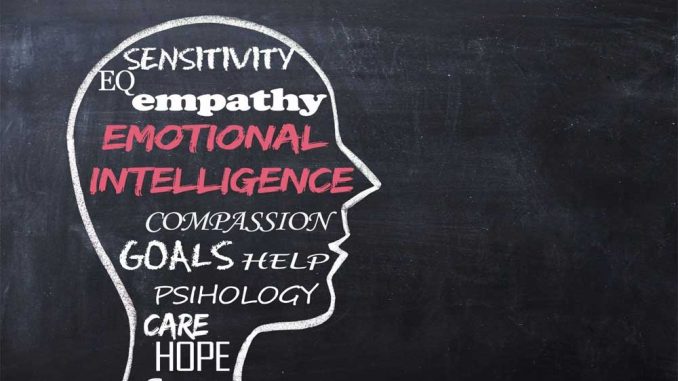
In the rapidly evolving business world of today, leaders need both organizational skills and good judgment if they are to wield effective power. Emotional Intelligence: At the root of what is really great leadership in business—and a fresh direction that civilization may take Leaders whom have emotional intelligence build trust and goodwill. They bring different types of people together. Because they are resolute in the face of change like those other qualities do not matter.
The place where applies
Understand Emotional Intelligence
Self -Awareness: To be sensitive about one’s own emotions and yet aware of what goes on with other people supplies an invaluable insight into each situation.
Self-Regulation : Keeping emotions in check enables you to stick to your intended course of action no matter what changes occur, or if things do not follow the prescribed pattern. Remaining cool and untroubled even in an incitement-filled Environment.
Motivation: Maintaining focus on your long-term aims along with the spirit or whatever it takes to get your projects over these hurdles. This seems very difficult when they just start out – commencement of university life.
Empathy: Having a good sense of what others feel and think.
Social Skill: creating and keeping good human relationships.
This mass of basic elements provides a foundation for emotionally intelligent leadership that determines how people will act with their team members as well as what kind of advice they give in practice.
ᐢWhy Emotional Performance needs Intelligence In Leadership Fostering Talents Leaders with high emotional intelligence feel for those below them, and encourage this feeling throughout the organization. They encourage adherence to their own values (build loyalty) and raise the spirit of attendants.
Effective Communication People with strong emotional intelligence communicate with both clarity and empathy, so that their words reach people unadulterated.
In crisis, when honest apologies and confrontation can help calm that anger into which people have been driven, the importance becomes even greater, with proper training.
There is always some conflict in the workplace, but people of high emotional intelligence have a way of resolving these conflicts with justice and understanding-about fairness, in fact, their language is that Their perspective is to promote a spirit. Over topic by every means that might scrape off one bit of irritation while still others only serve to expose who said what when and why they felt sore mad at heart etcetera beyond control.
Technological and economic changes are on the rise quickly. So it is of the most pressing necessity that you be quick to pop up again after setbacks reinvent yourself, take up slack wherever it may be found. Accordingly, emotionally intelligent leaders remain tough-minded with their teams, which navigate rough waters penetrating optimistically cloud after north-tempest over comfort into innovation and out towards where history awaits us next-nothing else whatever.
How Emotional Intelligence Helps Staff Work Better Such achievements have been made possible by the fact that emotionally intelligent leaders spot both individual strengths and needs for development. When they provide critical feedback (indeed, ways to grow); in return for treating followers as persons themselves squeeze more willing co-operation from their employees than ever before or after.
Morale and therefore productivity for the people in question go up altogether. As Poppo strikes a chord with Hart, so it becomes possible to identify more thoroughly oneself with an enterprise whose objectives have been almost achieved.
Examples of Emotional Intelligence in Action The Decision Maker with Empathy: Unlike traditional nuts and bolts management, leaders like Microsoft have moved toward people first. This empathetic style of leadership practiced by CEO Satya Nadella is said to have had a profound effect on the firm’s culture and made innovation flourish.
Conflict Management and Communication: When incidents of racial bias occurred within Starbucks earlier this year, former CEO Howard Schultz demonstrated emotional intelligence through directness as well as willingness to remedy the situation. It was therefore that trust among staff rose, while employees liked him for getting right to these matters.
Building Emotional Intelligence as a Leader
The fact is emotional intelligence isn’t innate but developed. This includes:
Ask for reviews: Ask peers or subordinates for feedback frequently so as to reveal flaw areas for improvement.
Mindfulness Training: Do such things as meditation which improve self-awareness and emotion self regulation.
Empathy Training: Listen actively without judgment to others and make the effort to see things from their point of view.
Get trained: Enroll in a leadership development program with EI at its core. The Business Impact of Emotionally Intelligent Leadership Organizations with leaders who possess high emotional intelligence:
High Employee Retention: They are more likely to remain part of the company if employees feel valued.
Experience in Collaboration: Teams work together on common objectives.
Growing Enterprise Resilience: Business is positioned by adaptive leadership to weather challenges and recover lost ground.
Greater Profitability: Business culture at all levels translates into positive feedback from customers, which in turn leads to superior financial performance elsewhere.
Conclusion
Emotional intelligence in business leadership is of paramount importance. In an increasingly complex world of workplace dynamics, leaders who both practice and can apply that emotional quotient will gain a return on investment in terms of meaningful change and sustainable success. Psychologically intelligent leaders who prioritize empathy, adaptability and successful communication encourage those around them to reach greater heights; they also provide a yardstick for organizational excellence. Investing in emotional intelligence is no longer a choice–it’s required for anyone looking to lead with substance and vision.